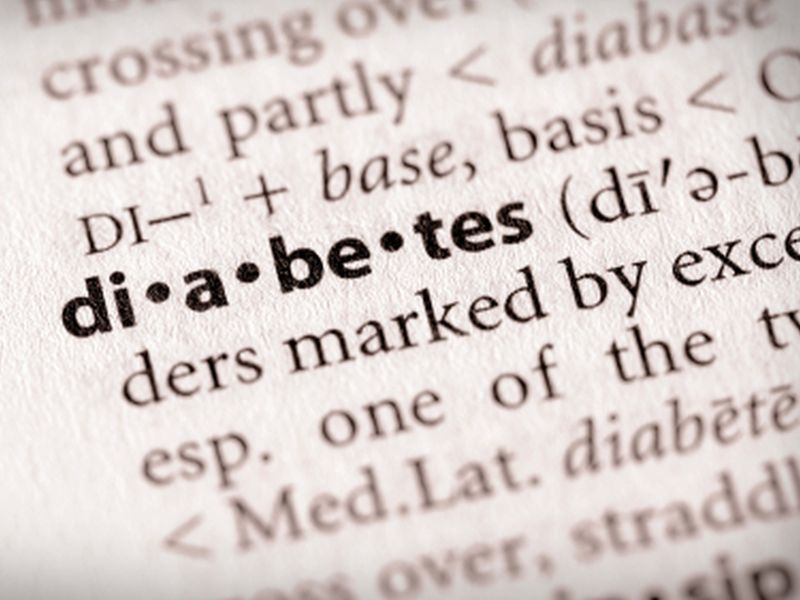
A COVID infection appears to drive up diabetes risk, new research warns.
The good news? Being vaccinated before becoming infected appeared to eliminate any increase in post-infection risk.
The finding follows a deep dive into the medical records of roughly 23,700 patients. At an average age of 47, all were treated for COVID infection at Cedars-Sinai Health System in Los Angeles at some point between 2020 and 2022.
Overall, having had COVID appeared tied to a 58% rise in a person’s odds of developing diabetes afterwards, the study found.
Still, the risk to any one patient of getting the blood sugar disease remained low: The investigators found that just over 2% had diabetes within three months after being diagnosed with COVID-19.
Notably, only 3 in 10 had developed diabetes prior to COVID-19. That meant that 70% were diagnosed with diabetes after becoming infected.
According to study author Dr. Alan Kwan, a cardiac imaging researcher with Cedars-Sinai’s Smidt Heart Institute in Los Angeles, the findings suggest that “the unvaccinated group had a significantly higher risk of diabetes after infection, and the vaccinated group did not.”
Kwan pointed out that the type of testing methods his team used means the finding is not definitive and more study will be needed.
Still, “we can say that our results were highly suggestive of a protective benefit of vaccination,” he added.
Specifically, 2.7% of unvaccinated patients were found to have diabetes in the three months after COVID infection, while only 1% of vaccinated participants developed diabetes in the months following infection.
More broadly, Kwan said that his team found “no clear difference” between the Omicron and Delta variants when it came to post-infection diabetes risk.
Both variants, he said, “had increased risk of diabetes post-infection.”
But why would COVID-19 infection boost diabetes risk in the first place?
“This is an extremely important question,” said Kwan. “Unfortunately, our study and other studies to date primarily look in a manner which identifies association, but does not explain the mechanistic pathway between COVID infection and diabetes.”
But Kwan said one working theory is that the significant short-term and long-term inflammation brought on by a COVID infection “may make patients [already] at risk for diabetes more likely to develop diabetes.”
In effect, Kwan and his colleagues suggest that COVID-19 may end up pressing the accelerator on type 2 diabetes, hastening disease onset among patients already vulnerable to eventually developing diabetes because of poor nutrition, obesity and/or inactivity.
If so, a COVID-linked rise in diabetes risk is potentially a very big problem, cautioned Kwan, given that most people in the United States both have had — or will eventually have — COVID-19. plus many are also at relatively high risk for developing type 2 diabetes.
“I would say that I wouldn’t minimize the risks associated with earlier onset of diabetes,” Kwan said, stressing that pre-diabetic patients can often be helped by improving their diet, losing weight and exercising.
The findings were published Feb. 14 in the journal JAMA Network Open.
Dr. Davey Smith is head of the division of infectious diseases and global public health and vice chair of research with the department of medicine at the University of California, San Diego.
He reviewed the findings and noted that “the heightened risk for diabetes diagnosis after COVID-19 is not a new finding,” adding that “multiple studies have observed this even during the early days in the pandemic.”
As to what’s behind the added risk, Smith suggested the answer is likely “multifactorial.”
He pointed out that many factors — like obesity and older age — are risk factors for both COVID-19 and diabetes. “Also, the use of steroids to treat COVID-19 increases the risk of diabetes afterwards,” Smith noted.
“Interestingly, in this study, COVID-19 vaccination reduced the risk of diabetes after someone had COVID-19,” Smith said. “I think this study points very clearly that COVID-19 vaccination has benefits beyond just protecting from severe COVID-19.”
More information
There’s more information on COVID-19 and diabetes risk at the American Diabetes Association.
SOURCES: Alan Kwan, MD, MSc, cardiologist and cardiac imaging researcher, Smidt Heart Institute at Cedars-Sinai, Los Angeles; David Smith, MD, head, division of infectious diseases and global public health, and vice chair, research, department of medicine, University of California, San Diego; JAMA Network Open, Feb. 14, 2023
Source: HealthDay

Leave a Reply